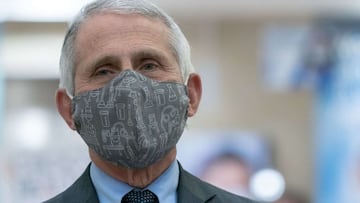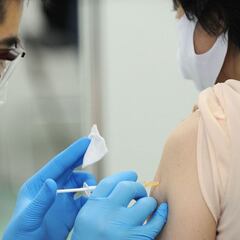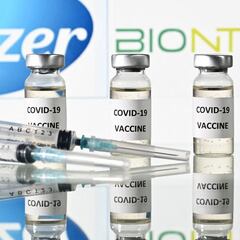What is the coronavirus Delta variant? Can vaccines prevent it spreading in the US?
A strain of covid-19 that has become a major concern in the UK now appears to be spreading in the States, but what does this mean for the national vaccination effort?


The World Health Organisation has recently introduced a new naming system for covid-19 variants, using a characters from the Greek alphabet rather than the place of origin to identify the strain.
In recent weeks the Delta variant, previously known as the Indian variant, has become a particular cause in countries around the world with a higher-than-typical transmissibility and the potential to evade vaccines in some cases.
On Tuesday Dr Anthony Fauci announced that the Delta variants now accounts for more than 6% of the sequenced coronaviruses in the United States, and it has become the most dominant stain in the United Kingdom.
Why is the Delta variant so dangerous?
Fauci, director of the National Institute of Allergy and Infectious Diseases and the White House’s chief medical advisor, has stressed the dangers that the Delta variant poses to the US.
He warned that this particular strain "may be associated with an increased disease severity, such as hospitalization risk, compared to (the Alpha variant, first identified in the UK)"
Top infectious disease expert Dr. Anthony Fauci cautioned against letting the Delta variant of COVID-19, first identified in India, take over in the U.S., urging people again to get vaccinated pic.twitter.com/sKzxUHQfiR
— Reuters (@Reuters) June 9, 2021
In the UK, health secretary Matt Hancock claimed recently that Delta is around 40% more infectious than Alpha, while the director of the Doherty Institute Sharon Lewin put the figure at around 50%.
Early studies suggest that this is because that particular strain is better at replicating in our cells than other variants are, and individuals infected with Delta are statistically more likely to pass it on to household members.
However while the rate of infection is higher scientists are not yet sure if the Delta variant is more deadly to those who become infected with it. In the UK, where the number of cases has nearly doubled in the past month, there has not yet been a rise in deaths or hospitalisations.
James Naismith, who runs the Rosalind Franklin Institute research centre, told the New York Times: “There are reasons to be hopeful — we’re not seeing a big trend in hospital admissions — but it’s early days.”
Do the covid-19 vaccine work against the Delta variant?
The vaccine rollout across the US has slowed significantly in recent weeks, falling from a seven-day average of 3.4 million on April 13 to just under 1.1 million last week. This fall-off in interest is a major concern for scientists hoping to reach herd immunity.
To make matters worse, Fauci has said that the initial finding suggest that vaccines may be less effective against the Delta variant in some instances. Recipients of both doses of the Pfizer or Astra-Zeneca shots should be protected, but Fauci warns that "there is reduced vaccine effectiveness in the one dose.”
Here’s a visual on the new real-world study assessing effectiveness of AstraZeneca and Pfizer vaccines against the Alpha and Delta variants. pic.twitter.com/23esNK29J4
— Sabina Vohra-Miller (@SabiVM) June 9, 2021
Related stories
He added: "Three weeks after one dose, both vaccines, the (AstraZeneca) and the Pfizer/BioNTech, were only 33% effective against symptomatic disease from Delta."
This places even greater importance on the vaccination effort, making it vital that Americans receive both doses of the vaccine as quickly as possible to ensure that the Delta variant does not take hold as it has done elsewhere.

